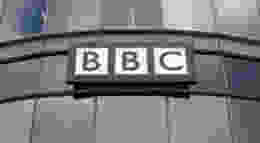
A quick UK-EU free trade deal is possible
Ben Somervell (who has his own blog HERE) explains why a bilateral UK-EU free trade agreement need not take as long as previous European free trade agreements.
We often hear from remain voters, that a free trade agreement (FTA) with the EU will take seven years as Canada's Comprehensive Economic and Trade Agreement (CETA) did. However, I am confident that a bilateral UK-EU FTA does not need to take anywhere near as long. Here's why.
Unlike all other countries seeking FTAs with the EU, we have the unique advantage of currently having no tariffs, quotas or unnecessary customs or trade barriers with the EU to negotiate away. With Canada's FTA with the EU the first four years were largely spent on human rights, on dispute settlement and on negotiating away the quotas, customs barriers and 16,500 tariffs between Canada and the EU. This will not be the case with the UK as we have no tariffs or quotas to negotiate away and as we already have 100 per cent legal and regulatory equivalence with the EU. The EU's FTA with the South Korea took about three and a half years to negotiate and Hong Kong's FTA with the EU took just two years and ten months. Under Tony Abbott's leadership, Australia negotiated three new FTAs in just one year. Australia negotiated its own free trade agreement with South Korea in just six months, Japan took only eight months and China took 13 months. Even Karel De Gucht, the EU's Trade Commissioner from 2010 to 2014, has said a UK-EU FTA said 'I am reading everywhere that it takes five, six, seven, eight years to do a trade negotiation. Yes, that's true but it's not for technical reasons, it's because you can't get an agreement. Technically you could make an agreement within a very reasonable period of time because we know each other'. The EU's own current Trade Commissioner, Cecilia Malmström, has herself said that the EU will strike a FTA with the UK 'for sure' and the President of the European Council, Donald Tusk, made it clear in his reply letter to the letter invoking Article 50 that the EU is also aiming for a FTA with the UK. Latvia's Prime Minister has said that a UK-EU trade deal is possible within the two-year Article 50 window. The leaders of Belgium and France have very recently put pressure on the European Commission (EC) for it to progress sooner onto negotiating a FTA with the UK.
It would be much simpler, both for the UK and the EU, for us to go from minimal customs checks, zero tariffs and quotas to minimal customs checks, zero tariffs and quotas (to retain the status quo) than it would be to go from minimal customs checks, zero tariffs and quotas to tariffs, quotas and extra customs checks. John Redwood has pointed out that not a single EU member state has said it wants tariffs to be introduced.
We have a second unique advantage of already having 100 per cent legal and regulatory equivalence with the EU as we have been an EU member state ever since 1973. We will still have that 100% equivalence on 1st April 2019 due to the so-called "Great Repeal Bill" (European Union (Withdrawal) Bill). No other country seeking a FTA with the EU has already had 100 per cent equivalence when trade negotiations began. We also the third unique advantage of already being, by far and away, the EU's largest single market and most important export destination in the entire world. In 2015, we had a huge £60bn trade deficit in goods with the EU. In 2015 the EU exported £290bn worth of goods to the UK and 5-6 million EU jobs rely on exports to the UK. Why would the EU put these jobs and this trade and profit at risk by unnecessarily delaying a FTA or by unnecessarily wasting 7 years on an FTA which could be done much more quickly? This is another unique advantage as the incentive to continue existing, mutually-beneficial trade (and the disincentive of losing this already-existent, mutually beneficial trade) is significantly greater than starting from scratch and having little/no trade before as is the case with all other countries seeking FTAs with the EU. The EC's Chief Brexit Negotiator, Michel Barnier, himself enforced this and showed his desire for a Brexit deal when he tweeted the following on 7th July this year: "In a classic negotiation 'no deal'=status quo. #Brexit 'no deal'=return to distant past, which we all should avoid".
The Hungarian Prime Minister himself said on 6 July that no Brexit deal at all on 1 April 2019 would mean 'big trouble' and a 'nightmare scenario' for Europe. Even Michel Barnier has himself admitted that no Brexit deal would be 'bad' for the EU.
Many remain voters make the argument that the EU will refuse to offer us a good FTA as this would incentive other member states to leave the union and that the EU will instead punish us for leaving and make an example out of us. This argument contains a number of significant flaws. Firstly, the EU is very much limited in their capacity to punish us – there are no tariffs worldwide on services and the average World Trade Organisation (WTO) most-favoured nation (MFN) tariff on goods is less than five per cent. The leaders of the EU have repeatedly stated that they're not going to punish us. Secondly, the UK is and has always been completely different from all of the other EU member states. We originally had our membership application vetoed twice as it was thought that the protectionist nature of the EU wouldn't suit us (it hasn't) and we consequently joined later than some other member states. We've always been significantly more Eurosceptic than all of the other member states as was shown in the rebellion over the Maastricht Treaty. Even the former President of the EC, Jacques Delors, said in 2012 'The British are solely concerned about their economic interests, nothing else […] If the British cannot support the trend towards more integration in Europe, we can nevertheless remain friends on a different basis. I could imagine a form such as a free-trade agreement'. Thirdly, the EU already has FTAs with more than 50 non-EU countries which don't require the freedom of movement of people or annual payments and the EU didn't stop themselves from signing these deals in case it might incentivise member states to vote to leave the union. If the EU refuses to give us a good FTA, it could back-fire as it may well make British voters even more Eurosceptic and anti-EU. The initial and rather arrogant response of some EU figures to Brexit has already caused some people such as Conservative MP Ben Bradley to convert to the Brexit cause (you can read his story here). As Daniel Hannan MEP has pointed out, it's extraordinary that remain voters constantly use this punishment argument whilst also simultaneously arguing that the EU is an 'irenic peace project' which is all about brotherhood. This punishment argument implies that the only glue that holds the EU together is the fear of what might happen if one of its member states democratically votes to leave. This is much less like an 'irenic peace project' based on brotherhood and much more like the Soviet Union and its relationship with its "satellite states" in Eastern Europe. As the Soviet Union's last Premier, Mikhail Gorbachev, himself put it: 'The European Union is the Soviet Union in western clothes'.
It's worth bearing in mind the facts about the most unlikely and worst-case scenario of the UK leaving the EU with no deal at all. Firstly, we are currently one of the EU's largest and only net contributors and there will be a sizeable hole in its budget when we officially leave the EU. The House of Lords' EU Financial Affairs Committee has stated that the UK would have no legal obligation to pay the EU any so-called Brexit "divorce bill", which could ease the EU's budget problems at least in the short-term, if we were to leave without a deal. Secondly, 6 of the EU's 10 most important trading partners trade with the EU on WTO tariffs. Thirdly, we already conduct 56 per cent of all of our trade (our trade with the 163 or so non-EU countries) on WTO tariffs. Only six per cent of UK firms ever export to the EU and only 44 per cent of our trade is conducted with the EU and this has fallen from 54.8 per cent in 1999. 60 per cent of our services exports go to non-EU countries and the amount we export to non-EU countries will undoubtedly increase significantly once we leave the EU and the customs union as we can then negotiate our own bilateral free trade agreements with them for the first time since 1972. 70 per cent of the UK economy is domestic, 17 per cent is exports to non-EU countries and only 13 per cent is exports to the EU. The EU's share of global GDP (PPP) is significantly shrinking – it was 30 per cent in 1980 but was just 17 per cent in 2015. Over the next 10-15 years, the EC has itself stated that 90 per cent of global economic growth will come from outside of Europe altogether. The fastest growing economies such as China and India are outside of Europe altogether and non-EU countries such as Switzerland have free trade agreements with many of them. We'll be able to strike FTAs with these 163 countries (over 90 per cent of the world's economies) once we've officially left the EU and its customs union. As of 31st July last year, 27 non-EU countries with a combined GDP of over £40 trillion reportedly already wanted to sign new trade deals with the UK once it leaves the EU and this potential market rather dwarfs the EU's internal market which is worth about £12 trillion. Fourthly, as we have such a large trade deficit with the EU (£60bn in 2015) and as the EU exports much more to us than we export to them, the EU would, in total, have to pay twice as much in tariffs on their exports to us (£12.9bn per year) as we would on our exports to them (£5.2bn per year) as recent research from Civitas has shown. Even if you add up all of the tariffs the EU could put on all of our exports to them, it is equivalent to less than half of our annual net EU membership fee. There are no tariffs on services worldwide and the average most-favoured nation tariff on goods exports to the EU is less than five per cent and it's just 2.3 per cent for non-agricultural products. The devaluation of the value of the pound since the referendum has made our goods exports significantly more competitive and has resulted in the first rise in UK exports since 2016. The referendum merely brought forward an already-inevitable devaluation in the value of the pound which both the International Monetary Fund (IMF) and the Organisation for Economic Co-operation and Development (OECD) said saw as over-valued in the first place as Jacob Rees-Mogg has pointed out. This devaluation alone rather dwarfs an average MFN tariff of less than five per cent. Finally, the Government has been and still is preparing for all possible outcomes of the Brexit negotiations, including no deal at all. Conversely, Michel Barnier unwisely refuses to imagine the UK leaving the EU without a deal. This refusal is reflected in what Jeremy Browne, the City of London Corporation's Special Representative to the EU, said recently 'it's also quite noticeable that the EU, I think, is not doing sufficient planning on terms of worst-case scenarios at their end in terms of, you know, would Britain not pay an exit fee [if we were to leave with no deal]?'.
Therefore, voters should be much more optimistic about a potential FTA with the EU and should realise that the EU would be very unwise to cut its nose off to spite its own face by trying to punish us, even though it has only a very limited capacity to do this.













